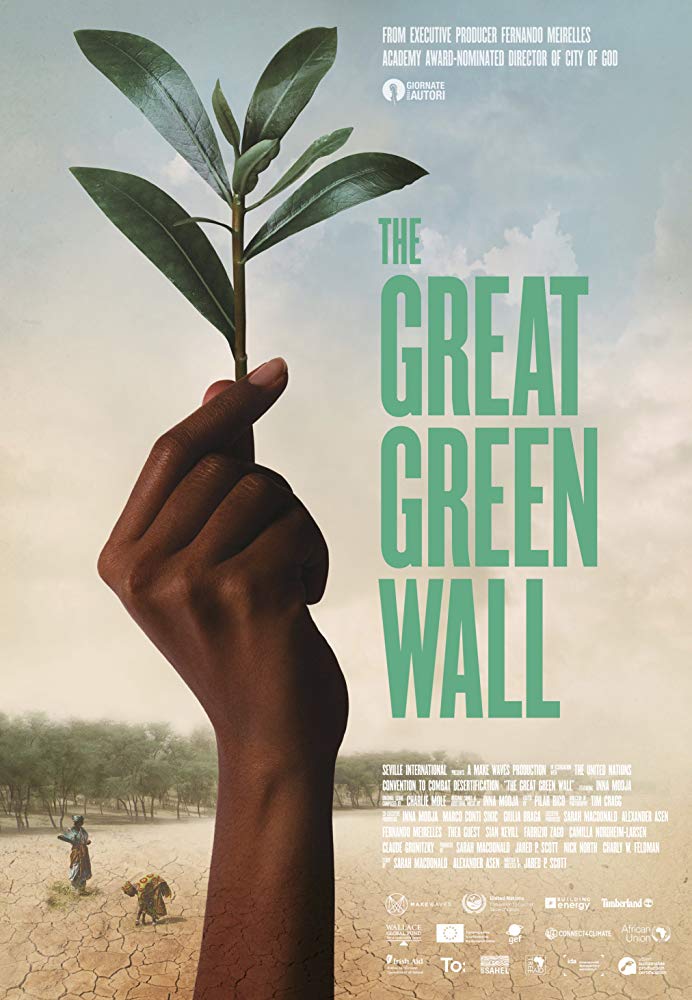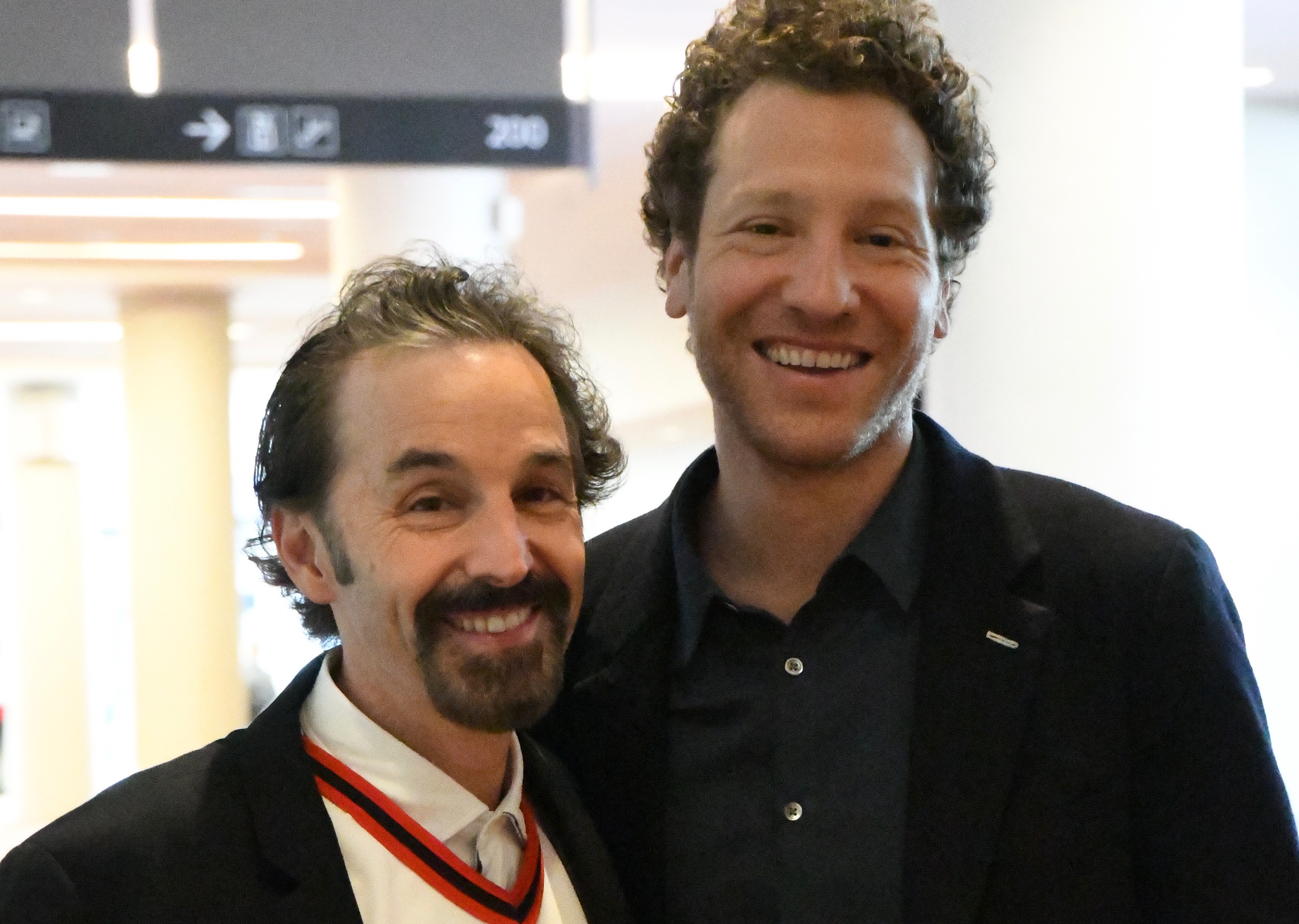Who could possibly create a documentary about Russia, hockey, the Pittsburgh Penguins, and the Mafia that is funny, educational, and insightful? None other than Gabe Polsky who gave us “Red Army” in 2016. While you might be thinking that this is just an extension of his first film, think again. This is one of the most bizarre, underreported, and unfathomable sports stories in history. Polsky’s subject, Steven Warshaw, a marketing genius, took it upon himself to attempt to save the Russian hockey program and create interest and financial stability for this Red team. What he found was corruption, embezzlement, and mind-boggling sordid situations proving the adage that truth truly is stranger than fiction.
The film premiered at the Toronto International Film Festival and I had the pleasure of sitting down with Chicago native Polsky and his subject, Steven Warshaw, for an entertaining and insightful conversation about the making of this film.
Pamela Powell (PP): How did you two become acquainted?
Gabe Polsky (GP): I was promoting “Red Army,” …at one of the festivals in NY and Steve came up to me afterwards and told me that he has a great story [and] that it’s also about this Red Army team, but it’s about the ’90’s and what happened afterwards. … But I told him, “Look, I’m not interested in even going near Russia or hockey again.” I just did this big film and I was kind of mad, actually, about the idea of doing something like that. Anyway, Steve asked for my address and I did give it to him. (Chuckling) He didn’t look like a creepy guy. He was a little strange (more laughter) … I got this huge box of materials, videos, documentation, photos, all this stuff about this story and I opened it up and looked through it and was kind of amazed and shocked … but then I pushed it away again.
PP: What made you open it back up and delve into the making of this film?
GP: It was the kind of thing that even to this day I was reluctant to go for because
Steven Warshaw (SW): This is the antithesis of what he had seen. [He] documented maybe the greatest hockey team in history and now he’s going to look at the train wreck that ensued after the Soviet Union. And we were that train wreck.
PP: And you were the engineer? (Laughing)
SW: No, I was the conductor, the engineer, and the toilet cleaner! (Laughing)
PP: Why did you hold on to all of this stuff?
SW: I am a pack rat. I save everything that’s flat. … I don’t save plush animals or hockey pucks. If it’s flat, I save it. Photos, tickets, contracts, archival material, artwork, anything that I can stack. And this was a really important part of my life. I fell in love over there, not just with the team, but I fell in love with a fantastic Russian woman. I was 34 at the time. I fell in love with the culture. … When we were just blown out of there, it hurt. It was like getting your doors blown off in a romance. … I always saved my love letters from my girlfriends, maybe I’ll be able to resurrect this too. So that’s why I did it.
PP: They say that with age comes wisdom. This is a two part question. What would you tell your younger self and would you do anything differently?
SW: Second question first. I would much rather have gone to Italy or Spain or done this in a better country. You look back and I had attributed it to just youthful insanity. In retrospect, obviously, it was crazy. I should have taken the other job offer I had … I had two offers at the same time. Either go to Russia or to come to Canada. So in retrospect I should have definitely gone to Vancouver and had a beautiful life in Canada instead of this crazy mad [one], but then Gabe wouldn’t have had a film. (Laughing) There you go. It was intriguing for us because we were young and stupid so the danger element was almost an adrenaline rush for us. Yes, you look back, I didn’t have kids so I could take chances back then. Now I wouldn’t, of course.
PP: What did your mother think?
SW: She thinks I [was] a greeting card salesman! (Laughs). Actually, they came to see us in (Russia). They came on Revolution Day. Nov. 7, 1993 … They had a great time over there. They didn’t see all of the criminal elements. They didn’t know about it. I didn’t tell them.
GP: Now they’ll know.
SW: Now they’ll know they raised a stupid kid. (Laughs!)
PP: Steven, how did all of this influence your future career and choices?
SW: I made a lot safer decisions. Blue chip type of deals instead of wild fantasy deals, but I still think I’ve got one more in me before I check out of here so maybe I’m looking at some other crazy, third world country and bringing badminton or I don’t know. There’s one more chapter in me … for you (looking to Gabe)!
PP: Gabe, there was one particularly chilling scene in the film where you discovered someone lurking behind you; you were being watched and followed when you were in Russia. Did this give you pause about completing film and presenting it publicly?
GP: It did! The answer is yes, I did feel kind of weird being in Russia at that time. Sanctions were going strong and the sentiment toward Americans wasn’t great. I wouldn’t say just regular people. The government position was pretty clear, but people were generally warm. I don’t know why, but when I was there, I felt a little bit paranoid and I’m not a super paranoid guy, but I felt weird. And when that happened, it was a WTF moment. Yes, I’ve been thinking a little bit about … the danger.
PP: Given today’s political environment, what do you think viewers will take away from this very timely piece even though this took place back in the 1990’s?
GP: I would hope that first of all, understanding the history and what happened in the ’90’s has relation to what’s happening now and their views toward Americans. Our working relationship, I think this is a good example of what [was] happening to all companies that were coming to Russia at the time. … and as soon as they saw success, they saw almost insurmountable challenges from encroaching interests. But more than even that, it’s this idea to understand the Russian psychology and behaviors in a deeper way. We read a lot of facts and allegations about that, but no one really gets to see how people behave and talk and deal with people. I think this story, by experiencing the story, we get to know the culture a lot better. Not just their culture, but ours too.
PP: Steven, when you watched the film, the interviews with those who spoke about you, what did you think or feel when you heard what they had to say?
SW: I’m still shocked that Goshen’s still breathing oxygen. That guy, he’s a walking heart attack. And everyone else died, except him.
PP: What does that tell you? (Laughing)
SW: That he’s Rasputin. He’s the devil! (More laughter) To me, it was frightening because I didn’t know how crazy I was back then. I wasn’t a kid, I was 34. We just threw caution to the wind and we were just worried about accomplishing our mission, to fill the arena and sell sponsorships, create tours, merchandising, a great story.
GP: But when you saw those other characters, the KGB guy and even Gusev, how did you feel? How did you feel?
SW: I wasn’t really shocked because I had lived it. But the one shocking element to me that I learned from the film was just how close the Mafia got to Gusev, my Russian partner. They really read him the riot act that he’s gotta leave Pittsburgh. I didn’t know that until I saw the film. I didn’t realize the Mafia was so deep into Viktor Gusev’s life that they had threatened him.
PP: But there’s that haunting laugh from Goshen.
GP: Yeah, how do you feel about that scene?
SW: It’s vintage Goshen. He’s brain damaged from alcohol. He’s had heart attacks, he’s been in car accidents, he’s been in prison. I mean the guy’s had an incredible life. So to me, he’s the perfect foil.
GP: Why is that vintage Gushen? What is that laugh?
SW: It’s demonic. He’s the evil empire that Reagan referred to. He’s a cartoon character that came to life and I’m just flattered that he said he’d still be my friend! (Laughs!)
PP: Flattered or scared?
SW: Scared! The same thing is that he would rather fail on his own that succeed with the [Americans]. I think that’s the critical point. They had such pride and that’s why they couldn’t take it. … It was embarrassing for them because it took foreigners to come in and do their job for them. They resented us for that and they actually rooted against us.
4 out of 4 Stars
Be sure to check back to find out how and when you can see this timely and entertaining film.


